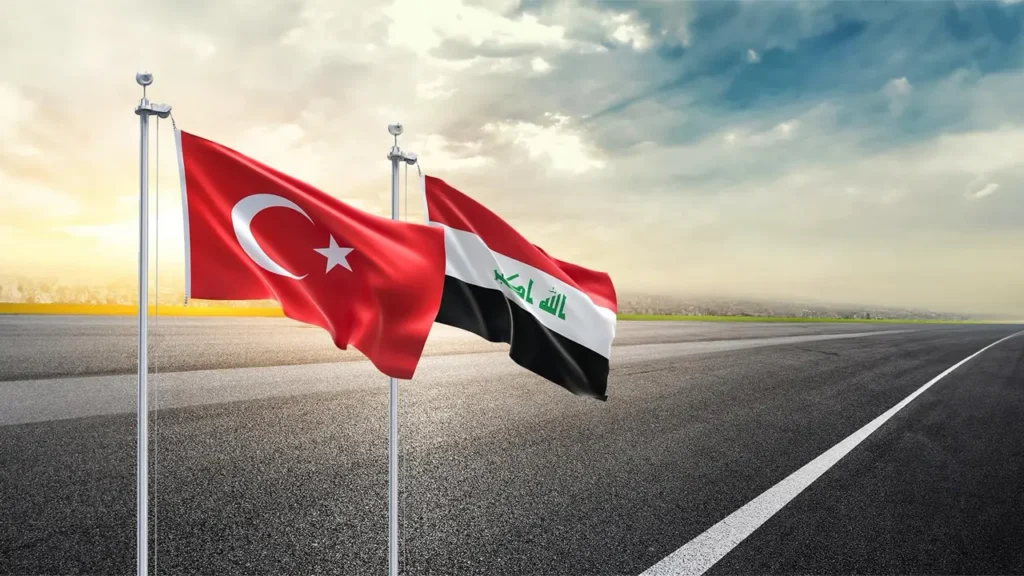The Rise of Geoeconomics as a Foreign Policy Instrument
Geoeconomics, in the literature of international relations, is a strategic concept that denotes the realization of geopolitical goals through economic means. This concept rests on the use of economic power as a mechanism of pressure or incentive toward foreign policy objectives. The transformations in the international system after the Cold War have compelled states to turn to economic methods in foreign policy rather than military interventions. Within this framework, economic sanctions, trade policies, and investment strategies provide ways of achieving geopolitical objectives while avoiding the high costs and risks associated with military action. However, the success of geoeconomic strategies depends on the suitability of the instruments employed and the degree of international cooperation; for such strategies lead to complex and multidimensional interactions that can sometimes produce unexpected outcomes.
In the international system where the boundaries of globalization are increasingly blurred and gradually giving way to de-globalization, relations among states have become too complex to be explained solely by political and military factors. Economic factors—particularly geoeconomic elements—play a critical role in shaping states’ foreign policy choices, thereby making the multidimensional nature of international relations even more pronounced. Fundamental elements such as geographical proximity, energy resources, trade routes, and market potential stand out as key determinants not only of competition but also of cooperation among states. In this context, the relations between Türkiye and Iraq, two actors of strategic importance in the Middle East, constitute a distinctive case that demonstrates both the significance and the complexity of geoeconomic strategies. This analysis seeks to examine the multiple layers of Türkiye-Iraq relations from a geoeconomic perspective, evaluating both countries’ strategic interests as well as the implications of these relations for regional stability.
Geoeconomic Dynamics and Strategic Alignment
Relations between Türkiye and Iraq are not confined solely to traditional political and military interactions but instead possess a multilayered structure in which geopolitical objectives are pursued through economic instruments. This reality demonstrates that both countries actively employ economic diplomacy to safeguard their national interests while simultaneously consolidating their strategic positions in the region. At the core of these relations lie access to energy resources, the security of trade corridors, and regional stability—factors of vital importance for both states.
In economic terms, Türkiye’s identity as a regional economic power and industrial exporter, combined with its dependency on Iraq to meet a significant portion of its energy demand, creates a unique situation. Data from the Turkish Statistical Institute (TÜİK) and the Ministry of Foreign Affairs serve as concrete evidence of this mutual dependence. Türkiye’s exports to Iraq, amounting to 12.7 billion USD, and its imports, totaling 7.1 billion USD, reveal the asymmetric nature of trade; yet, the fact that Türkiye constitutes Iraq’s largest import market with a 26.7% share highlights the depth of Iraq’s economic integration with Türkiye. Likewise, the reality that approximately 40% of Iraq’s oil exports and 20% of Türkiye’s energy needs flow through Türkiye demonstrates how the prosperity and stability of both countries are directly interconnected.
This mutual dependence naturally brings forth both areas of cooperation and spheres of competition. The Turkish contracting sector’s undertaking of 1,101 projects worth 35 billion USD in Iraq over the past two decades illustrates Türkiye’s pivotal role in Iraq’s reconstruction as well as the economic leverage this role confers. The bilateral trade volume reaching 24.1 billion USD is not merely a reflection of numerical growth but also an indicator of diversification in commercial ties. Exports of textiles, food, machinery, and iron-steel showcase Türkiye’s industrial capacity, while imports of crude oil reflect Iraq’s abundance of energy resources.
Infrastructure Projects and Reflections of Energy Dependency
One of the most significant geoeconomic projects that will shape the future of relations is the Development Road Project. The 1,200 km rail and highway line stretching from Basra to the Turkish border will not only enhance commercial flows between the two countries but will also create a new dynamic in global supply chains as an alternative trade corridor to the Suez Canal. The project’s potential to improve logistical efficiency and reduce costs may also influence regional power balances by offering a strategic alternative to China’s Belt and Road Initiative. The quadrilateral agreement signed between Iraq, Türkiye, the United Arab Emirates, and Qatar demonstrates the political commitment behind this project.
In the field of energy, the Kirkuk-Ceyhan Pipeline continues to be one of the cornerstones of bilateral relations. While this pipeline secures Türkiye’s energy supply, it also constitutes a vital source of revenue for Iraq. Türkiye, by employing oil flows as a geoeconomic instrument, is able to increase its leverage over Iraq when necessary. The fact that the flow of crude oil from Northern Iraq through Ceyhan is subject to arbitration and technical agreements highlights the political and legal dimensions of energy cooperation. Future plans for new pipelines or natural gas partnerships are likely to make these dynamics even more complex.
An Expanding Institutional Framework and the Security Focus
The multidimensional nature of relations is not confined to the spheres of economy and energy; it also encompasses areas such as security, water management, and institutional cooperation. Water management stands out as one of the most sensitive issues in bilateral ties, owing to the hydrological advantage Türkiye has gained through its investments in the Southeastern Anatolia Project (GAP). While Türkiye emphasizes cooperation under the principle of “equitable and reasonable utilization,” Iraq’s criticisms of Türkiye’s dam policies during periods of drought highlight the constant need for dialogue and joint planning in this field. The ten-year framework agreement signed in 2024 seeks to introduce a strategic approach to this issue.
On the other hand, the presence of the separatist terrorist organization PKK in Northern Iraq—an issue of shared security concern for both countries—is of vital importance for the healthy progress of economic and political relations. The security and cooperation memoranda signed in April and July 2024 aim to strengthen border security, intelligence sharing, and joint operational capacity against the PKK. These developments demonstrate that security cooperation has become a prerequisite for achieving geoeconomic objectives.
Institutional cooperation also reinforces economic integration. The Joint Economic and Trade Committee (JETCO) protocol has set out commercial goals by addressing customs, logistics, and investment facilitation. Moreover, the memorandum signed between the Türkiye Wealth Fund and the Iraq Development Fund establishes a concrete mechanism for evaluating joint investment opportunities in areas such as energy, infrastructure, and technology.
This multidimensional network of relations illustrates that the Türkiye-Iraq bond is built not only on economic interests but also on mutual trust and strategic alignment. Both countries strengthen their regional influence by employing geoeconomic instruments, yet in this process they must carefully maintain the delicate balance between cooperation and competition. In the future, factors such as fluctuations in global energy markets and climate change will further shape the dynamics of these relations. In this context, constructive dialogue and responsible policies will remain of critical importance for ensuring sustainable prosperity and security for both states.
Geoeconomic Projection and Conclusion
Türkiye-Iraq relations go beyond a mere state of mutual dependence; they represent a platform where both countries meticulously implement their geoeconomic strategies to maximize national interests. These strategies clearly demonstrate how economic instruments can be effectively utilized to achieve political objectives. On one hand, Türkiye contributes to Iraq’s development process through incentivizing policies such as infrastructure investments, energy agreements, and trade corridors, thereby enhancing its regional influence. On the other hand, it retains the potential to resort to deterrent instruments—such as restricting energy flows—when necessary. This dual approach constitutes a concrete example that reveals both the positive and punitive dimensions of geoeconomics.
Iraq, however, does not participate in this dynamic interaction as a passive actor. On the contrary, it continues its efforts to diversify exports and establish alternative partnerships with the aim of increasing its economic independence and creating a strategic balance vis-à-vis Türkiye. Türkiye’s initiatives toward renewable energy and Iraq’s endeavors to integrate into global markets stand out as the key elements that will shape the trajectory of bilateral relations in the future. This reciprocal interaction carries vital strategic significance for both regional stability and economic growth.
Looking ahead, Türkiye-Iraq geoeconomic relations will be influenced by multiple uncertainties such as fluctuations in global energy markets, the regional effects of water scarcity induced by climate change, and ongoing political instability. Under these circumstances, both sides must manage their interdependence with delicate balance and develop coordinated policies in line with their shared interests. The continuation of incentivizing mechanisms such as joint projects and free trade zones will maximize the mutual gains of both countries. Conversely, resorting to deterrent policies that may erode trust and increase economic and political costs in the long term would jeopardize the sustainability of relations. Therefore, the priority of both countries should be to institutionalize constructive cooperation mechanisms and employ geoeconomic instruments as tools for positive transformation.
Conclusion
In sum, this multidimensional network of relations—ranging from infrastructure to energy, from trade to security—demonstrates that Türkiye-Iraq ties are shaped around a geoeconomic axis and present a strategic test that goes beyond mere economic interests. In the face of shared challenges such as climate change and political instability, every step taken carries the potential either to build bridges of cooperation between the two countries or to deepen the chasm of competition. In this complex and dynamic environment, the development of responsible and prudent policies by both Türkiye and Iraq constitutes a fundamental condition for the sustainability of regional prosperity and security. Ultimately, the geoeconomic alignment of these two key regional actors may serve as a model for the entire Middle East and open the door to lasting stability.
References
- Kriter Dergisi. (t.y.). Türkiye-Irak ilişkilerinde yeni dönem: İkili ilişkilerden bölgesel iş birliğine. Erişim adresi: https://kriterdergi.com/dis-politika/turkiye-irak-iliskilerinde-yeni-donem-ikili-iliskilerden-bolgesel-is-birligine
- Türkiye Cumhuriyeti Dışişleri Bakanlığı. (t.y.). Türkiye Cumhuriyeti ve Irak Cumhuriyeti heyetleri arasında yapılan görüşmeye ilişkin ortak sonuç bildirisi. Erişim adresi: https://www.mfa.gov.tr/turkiye-cumhuriyeti-ve-irak-cumhuriyeti-heyetleri-arasinda-yapilan-gorusmeye-iliskin-ortak-sonuc-bildiris.tr.mfa
- Türkiye Cumhuriyeti Dışişleri Bakanlığı. (t.y.). Türkiye-Irak siyasi ilişkileri. Erişim adresi: https://www.mfa.gov.tr/turkiye-irak-siyasi-iliskileri.tr.mfa
- Orta Doğu Araştırmaları ve Stratejik Düşünce Derneği (ODAP). (t.y.). Türkiye-Irak Kalkınma Yolu Projesi: Yeni İpek Yolu olur mu? Erişim adresi: https://www.odap.org/bolgeler/orta-dogu/turkiye-irak-kalkinma-yolu-projesi-yeni-ipek-yolu-olur-mu
- Yükseköğretim Kurulu (YÖK). (t.y.). Yükseköğretim Bilim Dergisi. Erişim adresi: https://acikbilim.yok.gov.tr/bitstream/handle/20.500.12812/330991/yokacikbilim_10090614.pdf?sequence=-1&isallowed=y
- Uludağ Üniversitesi. (t.y.). Türkiye-Irak ilişkileri ve bölgesel iş birliği. Erişim adresi: https://acikerisim.uludag.edu.tr/server/api/core/bitstreams/bc594d98-03da-4644-9f0c-7c12d8d4478a/content
- Türk Diplomasisi ve Uluslararası Politika Araştırma Merkezi (TUDPAM). (t.y.). Son dönem Türkiye-Irak ilişkileri. Erişim adresi: https://tudpam.org/son-donem-turkiye-irak-iliskileri
- Okur, M. A. (t.y.). Cumhuriyetimizin yüz yıllık yolculuğundan “Türk Eli”ne: Türk dış politikasının ufkunda yeni(den) bir dünya mümkün mü? Türk Dünyası.
- Okur, M. A. (t.y.). Cumhuriyetimizin 100. yılında kökleri hatırlamak: Dünyacı milliyetçilik, tarihli Türklük ve tarihli Müslümanlık üzerine.
- Anadolu Ajansı. (2023, Kasım 14). Türkiye-Iraq Development Road Project: Enhancing regional connectivity and trade. Erişim adresi: https://www.aa.com.tr/en/middle-east/turkiye-iraq-development-road-project-enhancing-regional-connectivity-trade/2993555
- Türkiye Cumhuriyeti Dışişleri Bakanlığı. (2023). Türkiye-Irak ikili ticaret verileri. Erişim adresi: https://www.mfa.gov.tr/turkiye-irak-siyasi-iliskileri.tr.mfa
- Global Highways. (2023, Mayıs 18). 17 billion Türkiye-Iraq road rail link. Erişim adresi: https://www.globalhighways.com/news/17-billion-turkey-iraq-road-rail-link
- Şahin, M., & Okur, M. A. (2024). ABD dış politikasında jeoekonomik stratejiler: Rusya örneği. Marmara Üniversitesi İktisadi ve İdari Bilimler Dergisi, 46(2), 429-451. https://doi.org/10.14780/muiibd.1482912
- İletişim Başkanlığı. (2024, Nisan 22). Türkiye ile Irak arasında 11 anlaşma imzalandı. Erişim adresi: https://www.iletisim.gov.tr/turkce/haberler/detay/turkiye-ile-irak-arasinda-11-anlasma-imzalandi
- Cumhurbaşkanlığı İletişim Başkanlığı. (2024, 22 Nisan). Türkiye ile Irak arasında 11 anlaşma imzalandı. Erişim adresi: https://www.iletisim.gov.tr/turkce/haberler/detay/turkiye-ile-irak-arasinda-11-anlasma-imzalandi (Erişim tarihi: 16 Ağustos 2025).
- C. Dışişleri Bakanlığı. (2024, 22 Nisan).Türkiye Cumhuriyeti ile Irak Cumhuriyeti Ortak Bildirisi. Erişim adresi: https://www.mfa.gov.tr/turkiye-cumhuriyeti-ile-irak-cumhuriyeti-ortak-bildirisi.tr.mfa (Erişim tarihi: 16 Ağustos 2025).
- Anadolu Ajansı. (2024, 22 Nisan).Cumhurbaşkanı Erdoğan’ın Irak ziyareti. Erişim adresi: https://www.aa.com.tr/tr/gundem/cumhurbaskani-erdoganin-irak-ziyareti/ (Erişim tarihi: 16 Ağustos 2025).
- Anadolu Ajansı. (2025, 8 Temmuz).Türkiye ve Irak, Kalkınma Yolu Projesi kapsamında iş birliğini sürdürüyor. Erişim adresi: https://www.aa.com.tr/tr/ekonomi/turkiye-ve-irak-kalkinma-yolu-projesi-kapsaminda-is-birligini-surduruyor/(Erişim tarihi: 16 Ağustos 2025).
- TRT Haber. (2025, 25 Nisan).Türkiye-Irak Güvenlik Diyaloğu: PKK’ya karşı ortak operasyon sinyali. Erişim adresi: https://www.trthaber.com/haber/gundem/turkiye-irak-guvenlik-diyalogu-pkkya-karsi-ortak-operasyon-sinyali-876543.html (Erişim tarihi: 16 Ağustos 2025).
- Al Monitor. (2025, 30 Temmuz).Iraq, Türkiye still struggle to move forward on Development Road project. Erişim adresi: https://www.al-monitor.com/originals/2025/07/iraq-turkey-still-struggle-move-forward-development-road-project(Erişim tarihi: 16 Ağustos 2025).


